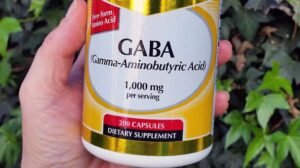Peppermint Oil for Hair Growth
Peppermint Oil for Hair Growth: A Comprehensive Guide
Introduction to Peppermint Oil for Hair Improvement
Peppermint oil, derived from the leaves and flowering parts of the peppermint plant (Mentha piperita), is a popular essential oil known for its distinct, refreshing aroma. The peppermint plant is a hybrid of water mint and spearmint, found primarily in North America and Europe. While animal studies have shown some promising results, human research on the direct benefits of peppermint oil for hair growth is limited. This article explores the potential hair growth benefits of peppermint oil, guidelines on its use, and alternatives to consider.
The Potential Benefits of Peppermint Oil for Hair Growth
Although research on peppermint oil for human hair growth is sparse, some studies on animals have shown encouraging results. For instance, a study involving mice found that peppermint oil increased dermal thickness, hair follicle count, and overall follicle size after four weeks of topical application. Furthermore, combining peppermint oil with other herbs, like chrysanthemum and licorice, has shown to enhance hair growth and the density of hair roots in animal trials. However, more research is needed to determine whether these effects can be replicated in humans.
Who Should Avoid Using Peppermint Oil on Their Hair?
Peppermint oil, particularly due to its menthol content, should be used with caution. It can negatively affect infants and young children, potentially causing respiratory issues. Therefore, it should never be applied to their skin or inhaled. If you plan to use peppermint oil in your home, store it in a safe place where children cannot access it. Additionally, peppermint oil may cause skin irritation or allergic reactions in some individuals, including:
-
Skin rashes
-
Allergic contact dermatitis
-
Itching (pruritus)
How to Safely Use Peppermint Oil for Hair
Essential oils like peppermint oil are not water-soluble but can be mixed with other liquids such as oils, alcohols, or ethers. The most common method of applying peppermint oil to hair is through hair care products like shampoos or conditioners infused with peppermint. This method allows for direct topical application to the scalp without the need for diluting the oil yourself.
Peppermint Oil in Shampoos: An Effective Alternative?
Shampoos containing peppermint oil, often combined with other essential oils, may offer additional benefits. Research has suggested that peppermint oil-infused shampoos may help treat dandruff more effectively due to the antifungal and anti-inflammatory properties of peppermint’s menthol. These properties can promote a healthier scalp and may support overall hair health.
Alternatives to Peppermint Oil for Hair Loss
While peppermint oil is a popular remedy for hair loss, it is important to consider other established treatments, especially if you have specific concerns regarding hair loss. Consult with a healthcare provider before starting any treatment to determine the best course of action for your situation. FDA-approved treatments for hair loss include:
-
Topical Minoxidil (Rogaine)
-
Oral Finasteride (Proscar, Propecia)
In addition, other treatments like corticosteroid creams, phototherapy (light therapy), or antifungal medication for scalp infections may be beneficial. Hair transplant surgery is another option in severe cases of hair loss.
Peppermint Oil vs. Rosemary Oil for Hair Growth
A 2024 review found insufficient evidence to recommend peppermint oil for treating androgenetic alopecia (genetic hair loss), but it did suggest that rosemary oil might have potential benefits. Rosemary oil has been shown to improve hair growth, particularly when used in conjunction with other proven treatments like minoxidil or finasteride. More research is needed to validate the full effects of rosemary oil.
Conclusion
While peppermint oil offers some promising results in animal studies regarding hair growth, the evidence in humans is not yet conclusive. If you wish to try peppermint oil, look for shampoos or other hair care products containing it, or consult with a professional about incorporating it into your routine safely. For individuals experiencing significant hair loss, FDA-approved treatments like minoxidil and finasteride are more reliable options. Always consult with a healthcare provider to identify the underlying causes of hair loss and explore the most appropriate treatment for your needs.
Frequently Asked Questions
Is Peppermint Oil Safe for Everyone?
Peppermint oil should be used with caution, particularly around infants and young children, due to potential respiratory risks. It may also cause skin irritation in some individuals. Always perform a patch test before use.
Can Peppermint Oil Be Used in Shampoos?
Yes, peppermint oil is often included in shampoos to help treat dandruff and promote scalp health. The antifungal and anti-inflammatory properties of peppermint oil contribute to its effectiveness in these formulations.
Expert Tips for Hair Care
-
To make your hair care routine more effective, consider seasonal adjustments or trendy ingredient swaps.
-
For time-saving tips, choose shampoos and conditioners with added beneficial oils like peppermint.
-
Always check for any allergies or sensitivities before trying new products.
Key Takeaways
-
While peppermint oil may offer benefits for hair health, more human-focused research is needed.
-
FDA-approved treatments like minoxidil and finasteride remain the most reliable options for hair loss.
-
Always consult with a healthcare provider to ensure the treatment is appropriate for your condition.



